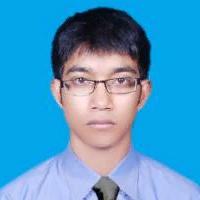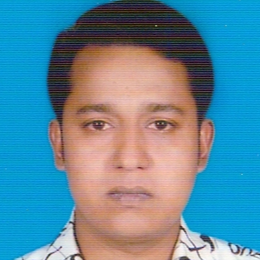International Journal of Image, Graphics and Signal Processing (IJIGSP)
IJIGSP Vol. 6, No. 12, 8 Nov. 2014
Cover page and Table of Contents: PDF (size: 352KB)
Automatically Gradient Threshold Estimation of Anisotropic Diffusion for Meyer’s Watershed Algorithm Based Optimal Segmentation
Full Text (PDF, 352KB), PP.26-31
Views: 0 Downloads: 0
Author(s)
Index Terms
Anisotropic diffusion, Computed tomography, Gradient threshold, Medical image, Morphological operation, Segmentation, Watershed algorithm
Abstract
Medical image segmentation is a fundamental task in the medical imaging field. Optimal segmentation is required for the accurate judgment or appropriate clinical diagnosis. In this paper, we proposed automatically gradient threshold estimator of anisotropic diffusion for Meyer’s Watershed algorithm based optimal segmentation. The Meyer’s Watershed algorithm is the most significant for a large number of regions separations but the over segmentation is the major drawback of the Meyer’s Watershed algorithm. We are able to remove over segmentation after using anisotropic diffusion as a preprocessing step of segmentation in the Meyer’s Watershed algorithm. We used a fixed window size for dynamically gradient threshold estimation. The gradient threshold is the most important parameter of the anisotropic diffusion for image smoothing. The proposed method is able to segment medical image accurately because of obtaining the enhancement image. The introducing method demonstrates better performance without loss of any clinical information while preserving edges. Our investigated method is more efficient and effective in order to segment the region of interests in the medical images indeed.
Cite This Paper
Mithun Kumar PK, Md. Gauhar Arefin, Mohammad Motiur Rahman, A. S. M. Delowar Hossain,"Automatically Gradient Threshold Estimation of Anisotropic Diffusion for Meyer’s Watershed Algorithm Based Optimal Segmentation", IJIGSP, vol.6, no.12, pp.26-31, 2014. DOI: 10.5815/ijigsp.2014.12.04
Reference
[1]P.Schoenhagen, S. S. Halliburton, A. E. Stillman, and R. D. White, “CT of the heart: Principles, advances, clinicaluses,” Cleveland Clinic Journal of Medicine, vol.72, no.2, 2005, pp.127–138.
[2]F. Frangi, W. J. Niessen, and M. A. Viergever, “Three-dimensional modeling for functional analysis of cardiac images: A review,” IEEE Trans. Medical Imaging, vol.20, no.1, 2001, pp.2–25.
[3]F. Frangi, D.Rueckert, and J. S. Duncan, “Three-dimensional cardio vascular image analysis,” IEEE Trans. Medical Imaging, vol.21, no.9, 2002, pp.1005–1010.
[4]Serge Beucher and Fernand Meyer. The morphological approach to segmentation: the watershed transformation. In Mathematical Morphology in Image Processing (Ed. E. R. Dougherty), pages 433–481 (1993).
[5]P. Perona, J.Malik, Scale space and edge detection using anisotropic diffusion, Proc. IEEE Comp. Soc. Workshop on Computer Vision (Miami Beach, Nov.30 –Dec.2, 1987), IEEE Computer Society Press, Washington, pp.16–22,1987.
[6]P. Perona, J. Malik, Scale space and edge detection using anisotropic diffusion, IEEE Trans. Pattern Anal. Mach. Intell., Vol.12, 1990, pp.629–639.
[7]Digital Image Processing by R. Gonzalez, Third Edition, 2005.
[8]S. Beucher and C. Lantuejoul, "Use of watersheds in contour detection," 1979.
[9]F. Meyer and S. Beucher, "Morphological segmentation," Journal of visual communication and image representation, vol. 1, pp. 21-46, 1990.
[10]L. Vincent, Algorithmes morphologiques a base de files d'attente et de lacets: extension aux graphes: Paris, 1990.
[11]F. Meyer, "Topographic distance and watershed lines," Signal Processing, vol. 38, pp. 113-125, 1994.
[12]A. N. Moga and M. Gabbouj, "Parallel image component labeling with watershed transformation," IEEE transactions on pattern analysis and machine intelligence, vol. 19, pp. 441-450, 1997.
[13]J. Roerdink and A. Meijster, "The watershed transform: Definitions, algorithms and parallelization strategies," Mathematical Morphology, vol. 41, pp. 187-S28, 2000.
[14]P. Soille, Morphological image analysis: principles and applications: Springer-Verlag New York, Inc. Secaucus, NJ, USA, 1999.
[15]J. Serra, Image analysis and mathematical morphology: Academic Press, Inc. Orlando, FL, USA, 1983.
[16]J. Serra and L. Vincent, "An overview of morphological filtering," Circuits, Systems, and Signal Processing, vol. 11, pp. 47-108, 1992.
[17]J. Roerdink and A. Meijster, "The watershed transform: Definitions, algorithms and parallelization strategies," Mathematical Morphology, vol. 41, pp. 187-S28, 2000.
[18]Angulo, J., Jeulin, D., “Stochastic watershed segmentation”, in: Banon, G.J.F., Barrera, J., Braga-Neto, U.d.M., Hirata, N.S.T. (Eds.), Proceedings of the 8th International Symposium on Mathematical Morphology (ISMM 2007), Instituto Nacional de Pesquisas Espaciais (INPE), S?ao Jos′e dos Campos. pp. 265–276, 2007.
[19]Jiann-Jone Chen, Chun-Rong Su, Grimson, W.E.L. , Jun-Lin Liu, De-Hui Shiue, "Object Segmentation of Database Images by Dual Multiscale Morphological Reconstructions and Retrieval Applications", IEEE Transactions on Image Processing, Vol. 21 , No. 2, Feb. 2012.
[20]Liu XS1, Shane E, McMahon DJ, Guo XE., "Individual trabecula segmentation (ITS)-based morphological analysis of microscale images of human tibial trabecular bone at limited spatial resolution", J Bone Miner Res., vol. 26 no. 9, pp. 2184-2193, Sep 2011. doi: 10.1002/jbmr.420.
[21]Gillibert L1, Peyrega C, Jeulin D, Guipont V, Jeandin M., "3D multiscale segmentation and morphological analysis of X-ray microtomography from cold-sprayed coatings", Journal of Microscopy, vol. 248, no. 2, pp. 187-199, Nov 2012.
[22]A. Korzynska, M. Iwanowski, "Multistage morphological segmentation of bright-field and fluorescent microscopy images", Opto-Electronics Review, Vol. 20, no. 2, pp. 174-186, June 2012.
[23]Md. Motiur Rahman, Abdul Aziz, Mithun Kumar PK, Mohammad Abu Naim Uddin Rajiv and Mohammad Shorif Uddin, “An Optimized Speckle Noise Reduction Filter For Ultrasound Images using Anisotropic Diffusion Technique”, International journal of Imaging, vol. 8, no. 2, 2012.
[24]Yi Wang, Ruiqing Niu, Liangpei Zhang, Huanfeng Shen, “Region-based adaptive anisotropic diffusion for image enhancement and denoising”, Optical Engineering, vol. 49, no. 11, November 2010.
[25]Xiaoming Liu, Jun Liu, Xin Xu, Lei Chun, Jinshan Tang, and Youping Deng, "A robust detail preserving anisotropic diffusion for speckle reduction in ultrasound images", BMC Genomics, 12(Suppl 5): S14, 2011.
[26]Mohammad Motiur Rahman, Mithun Kumar PK, Abdul Aziz, Md. Gauhar Arefin and Mohammad Shorif Uddin, “Adaptive anisotropic diffusion filter for speckle noise reduction for ultrasound images”, International Journal of Convergence Computing, Vol. 1, No. 1, 2013.
[27]Shin-Min Chao, Du-Ming Tsai, Wei-Yao Chiu, Wei-Chen Li, "Anisotropic diffusion-based detail-preserving smoothing for image restoration" 17th IEEE International Conference on Image Processing (ICIP), Hong Kong, 2010.
[28]Hum Yan Chai, Lai Khin Wee, Eko Supriyanto, "Edge detection in ultrasound images using speckle reducing anisotropic diffusion in canny edge detector framework", Proceedings of the 15th WSEAS international conference on Systems, pp. 226-231, Stevens Point, Wisconsin, USA, 2011.
[29]Boucher M., Evans A., Siddiqi K., "Anisotropic diffusion of tensor fields for fold shape analysis on surfaces", Springer-Proceedings of the 22nd International Conference on Information Processing in Medical Imaging, Canada, pp. 271-282, 2011.
[30]Qian Wu, Yu Chen, Gang Teng, "Lattice Boltzmann Anisotropic Diffusion Model Based Image Segmentation", Proceeding of the Computer, Informatics, Cybernetics and Applications (CICA)-Lecture Notes in Electrical Engineering Volume 107, pp 577-585, 2012.
[31]Jae Sung Lim, Sung In Cho, and Young Hwan Kim, "Accuracy enhancement of image segmentation using adaptive anisotropic diffusion", IEEE 2nd Global Conference on Consumer Electronics (GCCE), Tokyo, pp. 451 - 452, 1-4 Oct. 2013. DOI: 10.1109/GCCE.2013.6664887
[32]Bi L, Kim J, Wen L, Kumar A, Fulham M, and Feng DD, "Cellular automata and anisotropic diffusion filter based interactive tumor segmentation for positron emission tomography", Conf. Proc. IEEE Eng. Med. Biol. Soc., pp. 5453-5456, 2013. doi: 10.1109/EMBC.2013.6610783.
[33]Bhagwati Charan Patel and G. R. Sinha, "Energy and Region based Detection and Segmentation of Breast Cancer Mammographic Images", IJIGSP, vol. 4, no. 6, pp.44-51, 2012. DOI: 10.5815/ijigsp.2012.06.07.
[34]Abo-Eleneen Z. A, Gamil Abdel-Azim, "A Novel Approach for MRI Brain Images Segmentation", IJIGSP, vol. 5, no. 3, pp. 10-18, 2013. DOI: 10.5815/ijigsp.2013.03.02.
[35]Atiyeh Hashemi, Abdol Hamid Pilevar, Reza Rafeh, "Mass Detection in Lung CT Images Using Region Growing Segmentation and Decision Making Based on Fuzzy Inference System and Artificial Neural Network", IJIGSP, vol. 5, no. 6, pp. 16-24, 2013.DOI: 10.5815/ijigsp.2013.06.03.
[36]Bergeest JP, and Rohr K., "Efficient globally optimal segmentation of cells in fluorescence microscopy images using level sets and convex energy functionals", Med Image Anal., vol. 16, no. 7, pp. 1436-44, Oct 2012. doi: 10.1016/j.media.2012.05.012.
[37]Rafika Harrabi,Ezzedine Ben Braiek, "Color image segmentation using multi-level thresholding approach and data fusion techniques: application in the breast cancer cells images", EURASIP Journal on Image and Video Processing, vol. 2012, no. 11, May 2012. DOI: 10.1186/1687-5281-2012-11.
[38]Sonu Kumar Jha, Purnendu Bannerjeeb, Subhadeep Banika, "Random Walks based Image Segmentation Using Color Space Graphs", Procedia Technology,Vol. 10, pp. 271–278, 2013.
[39]Miranda, P.A.V., Falcao, A.X., and Spina, T.V., "Riverbed: A Novel User-Steered Image Segmentation Method Based on Optimum Boundary Tracking", IEEE Transactions on Image Processing, vol. 21, no. 6, pp. 3042 - 3052, June 2012. DOI: 10.1109/TIP.2012.2188034.
[40]Merciol, F., and Lefevre, S., "Fast Image and Video Segmentation Based on Alpha-tree Multiscale Representation", IEEE Eighth International Conference on Signal Image Technology and Internet Based Systems (SITIS), pp. 336 - 342, Naples, 25-29 Nov. 2012. DOI: 10.1109/SITIS.2012.56.
[41]W. J. Niessen, K. L. Vincken, J. A. Weickert, and M. A. Viergever, "Nonlinear multiscale representations for image segmentation," Computer Vision and Image Understanding, vol. 66, pp. 233-245, 1997.
[42]D. Ghoshal and P. P. Acharjya, “ Effect of Various Spatial Sharpening Filters on the Performance of the Segmented Images using Watershed Approach based on Image Gradient Magnitude and Direction”, International Journal of Computer Applications (0975 – 8887), Vol. 82, No. 6, November 2013.
[43]Angulo, J., Velasco-Forero, S., “Semi-supervised hyperspectral image segmentation using regionalized stochastic watershed”, in: Proceedings of SPIE symposium on Defense, Security, and Sensing: Algorithms and Technologies for Multispectral, Hyperspectral, and Ultraspectral Imagery XVI, SPIE, Bellingham. p. 76951F, 2010.
[44]K. B. Bernander1, K. Gustavsson1, B. Selig, I. Sintorn, C. L. L. Hendriks, “Improving the Stochastic Watershed”, Pattern Recognition Letters, Vol. 34, No. 9, pp. 993-1000, July 2013.



